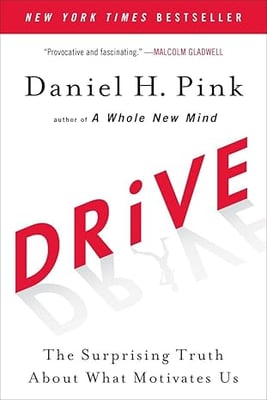ROB SAMMONS
CIO/CTO at CMOCloud
Can you please provide a little introduction about yourself
I'm a technology executive and solutions architect based in Utah with over 25 years of experience scaling high-availability solutions and leading large engineering teams. Currently, I am a CIO/CTO for a social media startup as well as work as an Independent Solutions Architect and Technical Leadership Consultant, helping organizations architect enterprise-scale applications and manage distributed engineering teams. I've also published a few recent books on cloud solutions and organizational transformation.
When I'm not architecting technical solutions, you'll find me pursuing my diverse interests. I'm a restaurateur, owning and operating several establishments, and I get to blend my love for technology with creativity in my workshop, where I design and build electronic devices using 3D printing and computer-aided design. I'm also a country music enthusiast and perform in a band. In my spare time, I enjoy cooking, bringing the same attention to detail and innovation to the kitchen as I do to technology solutions. I also love to clear my mind and relax with art, both pencil drawing and clay sculpture.
My background spans multiple disciplines - from computer science to traditional animation - which gives me a unique perspective on problem-solving and creativity in the tech world. I'm fluent in English and Spanish, with strong proficiency in Brazilian Portuguese, allowing me to work effectively with global teams and clients.
What has your journey to your position been like? What path have you taken?
My journey in technology began with a strong educational foundation - earning undergraduate degrees in Computer Science and Traditional Animation, followed by a graduate degree in Information Systems Management. This unique combination of technical and creative education has shaped my approach to problem-solving throughout my career.
I started my professional journey as a Senior Software Engineer in enterprise applications, working with Java and C++ technologies. This led to a role managing classified Department of Defense projects, where I earned my Six Sigma Green Belt certification - a milestone that taught me the value of process optimization and efficiency.
A significant turning point came when I became a Program Director for Latin America & Caribbean Markets, focusing on technical sales and development initiatives. This role expanded my horizons internationally and demonstrated my ability to drive business growth, increasing yearly revenue from $4.7M to $20M in just two years.
My journey then progressed through several executive technology roles, including VP of Software Development, CTO, and multiple CIO positions. Each role brought new challenges - from scaling healthcare platforms to support 600,000+ concurrent users to leading teams of 65+ developers and implementing comprehensive digital transformations.
As a Senior Software Architect and later Senior Director of Development, I directed enterprise software architecture and system integrations for global operations, managing teams of up to 110+ engineers across multiple regions and building successful nearshore development hubs.
Since 2018, I've been working as an Independent Solutions Architect & Technical Leadership Consultant, leveraging my accumulated experience to help organizations scale their enterprise platforms and manage distributed engineering teams. This role has allowed me to publish two books sharing my insights on cloud solutions and organizational transformation.
Has it always been your vision to reach the position you’re at? Was your current role part of your vision to become a tech leader?
My initial vision was focused on becoming a CIO, as I saw it as the perfect intersection of my passion for business, operations, and technology. The path seemed clear - leveraging my technical background while moving into broader business leadership felt like a natural progression.
However, as I advanced in my career and spent time in CIO roles, I made an important discovery about myself. While I enjoyed the business and operational aspects, I found that stepping away from hands-on technical work left a void. The mental stimulation and problem-solving challenges that come from being deeply involved in coding and IT architecture weren't just job functions for me - they were essential to my mental well-being and job satisfaction.
This realization led me to pivot more towards CTO-focused roles, especially within software companies. Here, I found my true passion - being able to dive deep into technical challenges while still maintaining a leadership position. Working as an Independent Solutions Architect and Technical Leadership Consultant has been a natural evolution of this journey, allowing me to stay closely connected to the technical aspects of projects while helping organizations scale and transform their operations.
Looking back, while my initial vision wasn't exactly where I ended up, the journey helped me understand what truly drives me as a technology leader. The combination of technical depth and leadership responsibility I have now actually offers more fulfillment than my original career goal would have provided.
Have you had a role model or mentor that has helped you on your journey?
Throughout my career, I've been fortunate to observe and learn from many talented professionals, incorporating their best traits into my own leadership style. However, two pivotal mentors have significantly shaped both my career trajectory and personal development.
The first and most fundamental influence was my father, an electrical engineer with a profound passion for technology. In the early 1980s, when personal computers were still a rarity in homes, he made the forward-thinking decision to integrate computers into our daily lives. His approach was methodical and educational - for every hour spent using the computer recreationally, he required two hours dedicated to understanding computer architecture and programming fundamentals. This structured approach led me to learn Expanded Basic programming language at an early age. Combining this with my natural inclination toward drawing and animation, I discovered I could use programming to create digital art and animations - a revelation that sparked my lifelong passion for technology. Beyond technical skills, he instilled in me the work ethic that would become crucial for success in the technology sector.
The second influential figure in my professional development was Roger Connors, co-founder of Partners in Leadership and New York Times bestselling author of works including "The Oz Principle" and "Journey to the Emerald City." I had the privilege of developing a close mentoring relationship with Roger, who took me under his wing and provided personal counsel throughout my early career development. Through our one-on-one sessions, he helped me understand and implement accountability principles not just theoretically, but practically in my own life and leadership style. His series on organizational and individual accountability, combined with his personal mentorship, provided me with invaluable insights into business leadership. Through his direct guidance, I developed a refined understanding of success - one that emphasizes the importance of balance and well-being while maintaining high professional standards. His hands-on mentorship helped me create a framework for achievement that harmonizes various life roles without compromising personal or professional integrity.
These two mentors complemented each other perfectly - one laying the technical foundation and work ethic essential for my career, and the other providing the business acumen and leadership philosophy that would guide my executive journey. Their combined influence has been instrumental in shaping my approach to technology leadership and organizational management.
How do you see the role of the technology leader evolving over the next 5 years?
The technology leader's role is likely to evolve in several key dimensions:
AI Integration and Governance
- Technology leaders will need to become skilled orchestrators of human-AI collaboration, making strategic decisions about where and how to implement AI while ensuring responsible and ethical deployment
- They'll need to develop robust governance frameworks for AI systems, balancing innovation with risk management and compliance
- Understanding and managing the implications of AI on workforce transformation will become crucial
Sustainability and Environmental Impact
- Technology leaders will increasingly be expected to drive sustainable technology practices and reduce their organization's digital carbon footprint
- They'll need to optimize infrastructure for energy efficiency while meeting growing computational demands
- Environmental considerations will become a key factor in technology procurement and strategy decisions
Business-Technology Convergence
- The distinction between business and technology strategy will continue to blur, requiring technology leaders to be more deeply involved in overall business strategy and transformation
- They'll need stronger business acumen and the ability to communicate technology's value in business terms
- Technology leaders will increasingly be expected to drive revenue generation and business model innovation, not just support operations
Talent and Culture Management
- Managing distributed, global teams will become more complex as hybrid work models evolve
- As leaders we will need to foster cultures of continuous learning to help teams keep pace with the increasing rate of technological change
- We'll need to balance automation with human capability development and workforce upskilling
Security and Resilience
- Cybersecurity will become even more central to the role as threats grow more sophisticated
- Technology leaders will need to build greater organizational resilience against disruptions
- Privacy and data protection will require more attention as regulations evolve and public awareness increases
What skills do you think leaders of the future will need in order to thrive?
Enduring Core Skills That Will Remain Critical:
Strategic Thinking and Vision
- Ability to connect technology capabilities to business outcomes and competitive advantage
- Long-term planning while maintaining flexibility for rapid changes
- Pattern recognition across complex systems and trends
Technical Foundation
- Strong grasp of fundamental technology principles and architecture
- Understanding of integration patterns and system design
- Ability to evaluate technical feasibility and risks
Leadership and People Management
- Building and motivating high-performing teams
- Developing talent and fostering growth
- Change management and organizational transformation
- Clear communication across technical and non-technical audiences
Business Acumen
- Financial management and budgeting
- Understanding of market dynamics and competitive landscapes
- Risk management and governance
Current but Evolving and Emerging Skills for Future Success:
Strategic AI Implementation and Human-Centric Decision Makin
- Critical ability to evaluate where AI adds genuine value versus where human judgment and interaction should remain primary
- Experience in identifying business processes where AI could lead to decreased customer satisfaction or missed nuanced decisions
- Skills in maintaining the right balance between automation and human-led services
- Understanding of when human expertise, emotional intelligence, and relationship building are irreplaceable
Sustainability Leadership
- Knowledge of green technology practices and environmental impact measurement
- Understanding of regulatory requirements and sustainability reporting
- Ability to balance environmental considerations with business needs
- Experience with sustainable infrastructure design and operation
Ecosystem Orchestration
- Practical experience in selecting and integrating best-of-breed solutions versus building in-house
- Track record of successfully managing strategic technology partnerships that deliver measurable business value
- Demonstrated ability to maintain organizational agility while working with multiple technology vendors
- Experience in measuring and optimizing the ROI of technology partnerships
Data-Driven Decision Making
- Advanced data literacy and analytics capabilities
- Understanding of data governance and privacy requirements
- Ability to translate data insights into strategic actions
- Experience with experimentation and hypothesis-driven development
- Adaptive Leadership
- Cognitive flexibility and rapid learning ability
- Comfort with ambiguity and continuous change
- Crisis management and resilience building
- Skills in scenario planning and adaptive strategy
Digital Ethics and Responsible Innovation
- Understanding of ethical implications of new technologies
- Experience with responsible innovation frameworks
- Ability to balance innovation with risk and social responsibility
- Knowledge of regulatory compliance and digital rights
- Leading diverse, distributed, and cross-cultural teams
- Understanding of global market nuances
- Skills in inclusive leadership and diversity management
- Experience with virtual and hybrid team dynamics
Is there anything in particular that you would still like to achieve in your career or what is the next step on your journey?
I would like to start my own software company. After analyzing market opportunities and my personal interests, I've narrowed my focus to three industries: fintech, education technology, and supply chain management.
These sectors particularly interest me because they're undergoing significant digital transformation and have problems that technology can meaningfully solve. Each offers unique opportunities to create value - whether it's making financial services more accessible, improving learning outcomes, or optimizing complex logistics networks. I'm currently evaluating specific niches within these industries to identify where my technical background and experience could have the most impact.
While I'm still exploring various options, I'm excited about the potential to build something that could make a real difference in one of these spaces.
What advice would you give to aspiring technology leaders who are just starting their careers?
First and foremost, develop a strong technical foundation, but recognize that technical expertise alone won't make you an effective leader. Focus on building a broad set of capabilities that combine technical knowledge with business understanding and people skills.
Stay curious and maintain a growth mindset. Technology evolves rapidly, and the most successful leaders are those who remain passionate about learning. Don't just chase the latest trends – develop a deep understanding of fundamental principles that underpin technological change.
Seek out opportunities to lead before you have the title. Obtain the necessary technical and soft skills that will make people view you as a leader, whether you have that title or not. Volunteer for cross-functional projects, mentor others, and take initiative in solving problems that extend beyond your immediate role. Leadership experience comes from doing, not waiting for a promotion.
Build relationships across the organization. Technical leaders need to collaborate with every department, so invest time in understanding different business functions and building networks beyond the IT team. Learn to speak both technical and business languages fluently.
Develop your emotional intelligence. Understanding and effectively managing both your own emotions and those of others is crucial for leadership success. Practice active listening, empathy, and clear communication.
Learn to balance pragmatism with innovation. While it's important to push boundaries and explore new technologies, successful leaders know how to deliver practical solutions that create real business value. Not every problem needs cutting-edge technology – sometimes simple solutions are best.
Find mentors and build a support network. Connect with experienced leaders who can provide guidance, share their experiences, and help you navigate challenges. Different mentors can offer different perspectives and insights.
Finally, remember that leadership is about enabling others to succeed. Focus on building and empowering strong teams, creating opportunities for others to grow, and fostering an environment where innovation can thrive.
"Stay curious and maintain a growth mindset."
What role do you see emerging technologies (e.g., AI, machine learning, blockchain) playing in your industry, and how are you preparing for them?
While emerging technologies are reshaping many industries, I believe blockchain technology has particular potential to transform how we handle data ownership and digital transactions. The technology could help shift us from centralized data models toward more individual data ownership and control. This transformation could impact various sectors by enabling new forms of digital verification, smart contracts, and peer-to-peer transactions.
However, AI and machine learning are currently having an even more immediate and profound impact. These technologies are already revolutionizing everything from customer service to product development and operational efficiency. I'm particularly interested in how the combination of blockchain's decentralized architecture with AI capabilities could enable new business models and ways of working.
To prepare for these changes, I'm:
Staying current with practical applications of these technologies rather than just the theoretical possibilities.
Developing a deep understanding of where these technologies can add real business value versus where traditional solutions might work better.
Focusing on how these technologies can solve actual business problems rather than implementing them for their own sake.
Building expertise in data security and privacy considerations, which become even more critical as these technologies evolve.
The key is to remain pragmatic and focused on genuine business value while being ready to adapt as these technologies mature and their practical applications become clearer.

This framework has deeply influenced how I lead. Rather than relying on traditional carrot-and-stick approaches, I focus on creating environments where people have the autonomy to shape their work, opportunities to continuously develop their skills, and a clear connection to meaningful purpose. I've seen firsthand how this approach unleashes creativity and drive that no bonus structure could match.
A big thank you to Rob Sammons from CMOCloud for sharing his journey to date.
If you would like to gain more perspective from Tech Leaders and CIOs you can read some of our other interviews here.
May 20, 2025


